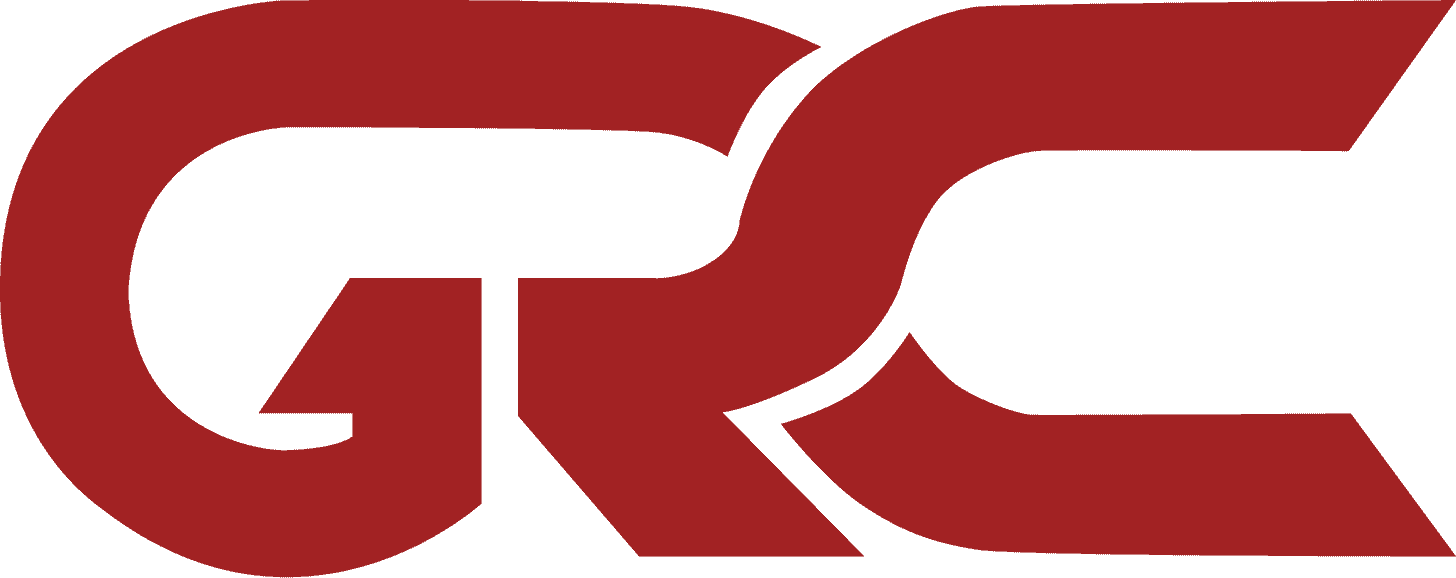UOC | Understanding Organizational Culture
UOC | Understanding Organizational Culture
This course is designed to provide and prepare the participant with confidence to meet the challenges of defining, measuring and assessing organizational culture and change processes to help achieve the best possible outcomes, and benefit from using the methods and models within these training course materials. Participants understand workplace culture and how to plan and instigate changes for long term benefit. This will be accomplished by:
Understanding the current culture and its workplace impact.
Adapting management styles to suit different behaviours.
Exploring the culture and understand areas for improvement.
Create visual aids that are well-considered and effective.
Developing a process for overcoming workplace cultural challenges.
In this course, we offer clarity on defining organizational culture, and the many parts which make up its constituents e.g. values, beliefs, artefacts.
These training course materials are centered around the elements of the Cultural Web and a series of thought provoking activities are undertaken to determine what culture exists within the workplace. Having established this, participants are then encouraged to look at how they can start to change things where needed.
Read full course description
This course is designed to provide and prepare the participant with confidence to meet the challenges of defining, measuring and assessing organizational culture and change processes to help achieve the best possible outcomes, and benefit from using the methods and models within these training course materials. Participants understand workplace culture and how to plan and instigate changes for long term benefit. This will be accomplished by:
Understanding the current culture and its workplace impact.
Adapting management styles to suit different behaviours.
Exploring the culture and understand areas for improvement.
Create visual aids that are well-considered and effective.
Developing a process for overcoming workplace cultural challenges.
In this course, we offer clarity on defining organizational culture, and the many parts which make up its constituents e.g. values, beliefs, artefacts.
These training course materials are centered around the elements of the Cultural Web and a series of thought provoking activities are undertaken to determine what culture exists within the workplace. Having established this, participants are then encouraged to look at how they can start to change things where needed.
Read full course description
UOC | In Depth Overview
UOC | In Depth Overview
UOC | Understanding Organizational Culture
______________________
Limited to just 20 participants, this 1-day course will impart to participants the fundamentals and the dynamics of organizational culture, its definition, measurement and assessment principles including objectives, roles, responsibilities, technical aspects, key challenges and, the reporting design and what regulators expect to see.
Why the interest in understanding culture?
It is widely agreed that failures of culture, which permitted excessive and uncontrolled risk-taking and a loss of focus on end clients, were at the heart of the last financial crisis. We regard the explosion of interest in culture in financial organizations since 2008 as being symptomatic of a desire to reconnect risk-taking and related management and governance processes to a new moral narrative of organizational purpose.
Regulation has undoubtedly been a big driver of culture change –a key issue being whether financial organizations understand the extent of the regulatory footprint on their business.
How will an Effective Culture Benefit Your Organization?
Defining organizational culture will describe its common characteristics and compare the functional and dysfunctional effects on people and the organization.
Understanding organisational culture is the key to measurement, which in turn, is the key to its management. To understand the organisational culture and how to best motivate employees to work productively, responsible and harmoniously, it is necessary to develop a simple three-part model representing effectiveness in :-
- The purpose of the organisation (goals and needs)
- The functions of the organisation (management )
- The energy of the organisation (people and motivation)
Who Should Attend?
The course is for leaders, managers and senior members of the organisation who can affect change. Ultimately, these training course materials will help employees to focus on improving the culture of the organisation. The training course is not a magic wand, but it will set participants on a path for improvement.
Speakers Profile
Industry thought leader with 30+ years of experience with a diversified involvement in defining and assessing abstract concepts in banking and financial services and clarifying regulatory demands and expectations in this environment.
Organizational Culture
______________________
| DAY 1 | 08:30 – 09:00 | Cultural perspective – What is Organizational Culture? |
| 09:00 – 09:30 | Impacts of Culture – What do cultures do? | |
| 09.30 – 10.00 | Cultural myths | |
| 10.00 – 10:15 | Break | |
| 10:15 – 11.00 | How to create and sustain cultures (with exercises) | |
| 11.00 – 12.00 | How do employees of a certain organization learn culture (with exercises) | |
| 12:00 – 13:00 | Lunch | |
| 13:00 – 14.00 | How to define a culture ( with exercises) | |
| 14.00 – 15.00 | How to assess a culture (with exercises) | |
| 15.00 – 15.15 | Break | |
| 15.15 – 16.15 | What are the ways for matching people with cultures? | |
| 16.15 – 17.00 | What are the key dimensions of differences in cultural values? |

Malcolm Farrell Staite | GRC Partner, BSc
Malcolm Farrell Staite leads the risk practice with accountability for developing assets and accelerators used to enhance the Clinic’s and Academy’s current market offerings in enterprise risk and governance. He has four decades of risk management experience in the financial services sector, in banking, insurance, asset management and prime brokerage, working with FTSE 100 and SME’s globally, especially Europe, MENA and Latin America, incorporating risk activity into vision and objectives to ensure capability and reliability in mitigating uncertainty and exploiting arising opportunity.
Post graduate work encompassed studies with Jeff Cartwright at the University of Exeter, into organisational and cultural management, researching comprehensively into different management models with the psychological assessment of what actually motivates people. Malcolm has also developed and presented risk, quality and cultural management training courses for the British, Argentinian, Thai and Japanese Standards Institutes.
Malcolm regularly challenges academic and professional opinion in articles through social and professional media and possesses the versatility to bring fresh perspectives, new ideas and intuition to spot growth opportunities from risk, influence business direction and drive value.
Education and Memberships
- University of Liverpool | Degree in Engineering with honors
- Registered Lead Auditor, Registrar Accreditation Board
- Member, American Society for Quality
- Member, International Institute of Risk Management
- Member, Institute of Operational Risk
- Member, Institute of Quality Assurance
- Member, European Foundation of Quality Management
- Member, Cultural Management Research Association

Michael Jensen | GRC CEO, MBA, Harvard Alumni
Michael Jensen is currently the owner and CEO for Global Risk Clinic, a global Governance, Risk and Compliance consultancy.
Michael has over 20 years of experience in enterprise risk management, governance, and Compliance.
Michael advices financial institutions around the world on their overall risk frameworks and other GRC related deliveries.
Michael is a frequent speaker and panel participant on risk management at various conference and other forums. Michael started the Institute of Operational Risk branch in the Nordic region
Michael provided input to an ERM textbook.
Education and Memberships
- Harvard Business School | Advanced Management Program
- Harvard Business School | Risk Management for Corporate Leaders, Executive Certificate Program
- Loyola Marymount University | Master of Business Administration,
- Nordic Branch Head, Institute of Operational Risk
UOC | Understanding Organizational Culture
______________________
Limited to just 20 participants, this 1-day course will impart to participants the fundamentals and the dynamics of organizational culture, its definition, measurement and assessment principles including objectives, roles, responsibilities, technical aspects, key challenges and, the reporting design and what regulators expect to see.
Why the interest in understanding culture?
It is widely agreed that failures of culture, which permitted excessive and uncontrolled risk-taking and a loss of focus on end clients, were at the heart of the last financial crisis. We regard the explosion of interest in culture in financial organizations since 2008 as being symptomatic of a desire to reconnect risk-taking and related management and governance processes to a new moral narrative of organizational purpose.
Regulation has undoubtedly been a big driver of culture change –a key issue being whether financial organizations understand the extent of the regulatory footprint on their business.
How will an Effective Culture Benefit Your Organization?
Defining organizational culture will describe its common characteristics and compare the functional and dysfunctional effects on people and the organization.
Understanding organisational culture is the key to measurement, which in turn, is the key to its management. To understand the organisational culture and how to best motivate employees to work productively, responsible and harmoniously, it is necessary to develop a simple three-part model representing effectiveness in :-
- The purpose of the organisation (goals and needs)
- The functions of the organisation (management )
- The energy of the organisation (people and motivation)
Who Should Attend?
The course is for leaders, managers and senior members of the organisation who can affect change. Ultimately, these training course materials will help employees to focus on improving the culture of the organisation. The training course is not a magic wand, but it will set participants on a path for improvement.
Speakers Profile
Industry thought leader with 30+ years of experience with a diversified involvement in defining and assessing abstract concepts in banking and financial services and clarifying regulatory demands and expectations in this environment.
Organizational Culture
______________________
DAY 1
08:30 – 09:00
Cultural perspective – What is Organizational Culture?
09:00 – 09:30
Impacts of Culture – What do cultures do?
09.30 – 10.00
Cultural myths
10.00 – 10:15
Break
10:15 – 11.00
How to create and sustain cultures (with exercises)
11.00 – 12.00
How do employees of a certain organization learn culture (with exercises)
12:00 – 13:00
Lunch
13:00 – 14.00
How to define a culture ( with exercises)
14.00 – 15.00
How to assess a culture (with exercises)
15.00 – 15.15
Break
15.15 – 16.15
What are the ways for matching people with cultures?
16.15 – 17.00
What are the key dimensions of differences in cultural values?

Malcolm Farrell Staite | GRC Partner, BSc
Malcolm Farrell Staite leads the risk practice with accountability for developing assets and accelerators used to enhance the Clinic’s and Academy’s current market offerings in enterprise risk and governance. He has four decades of risk management experience in the financial services sector, in banking, insurance, asset management and prime brokerage, working with FTSE 100 and SME’s globally, especially Europe, MENA and Latin America, incorporating risk activity into vision and objectives to ensure capability and reliability in mitigating uncertainty and exploiting arising opportunity.
Post graduate work encompassed studies with Jeff Cartwright at the University of Exeter, into organisational and cultural management, researching comprehensively into different management models with the psychological assessment of what actually motivates people. Malcolm has also developed and presented risk, quality and cultural management training courses for the British, Argentinian, Thai and Japanese Standards Institutes.
Malcolm regularly challenges academic and professional opinion in articles through social and professional media and possesses the versatility to bring fresh perspectives, new ideas and intuition to spot growth opportunities from risk, influence business direction and drive value.
Education and Memberships
- University of Liverpool | Degree in Engineering with honors
- Registered Lead Auditor, Registrar Accreditation Board
- Member, American Society for Quality
- Member, International Institute of Risk Management
- Member, Institute of Operational Risk
- Member, Institute of Quality Assurance
- Member, European Foundation of Quality Management
- Member, Cultural Management Research Association

Michael Jensen | GRC CEO, MBA, Harvard Alumni
Michael Jensen is currently the owner and CEO for Global Risk Clinic, a global Governance, Risk and Compliance consultancy.
Michael has over 20 years of experience in enterprise risk management, governance, and Compliance.
Michael advices financial institutions around the world on their overall risk frameworks and other GRC related deliveries.
Michael is a frequent speaker and panel participant on risk management at various conference and other forums. Michael started the Institute of Operational Risk branch in the Nordic region
Michael provided input to an ERM textbook.
Education and Memberships
- Harvard Business School | Advanced Management Program
- Harvard Business School | Risk Management for Corporate Leaders, Executive Certificate Program
- Loyola Marymount University | Master of Business Administration,
- Nordic Branch Head, Institute of Operational Risk
